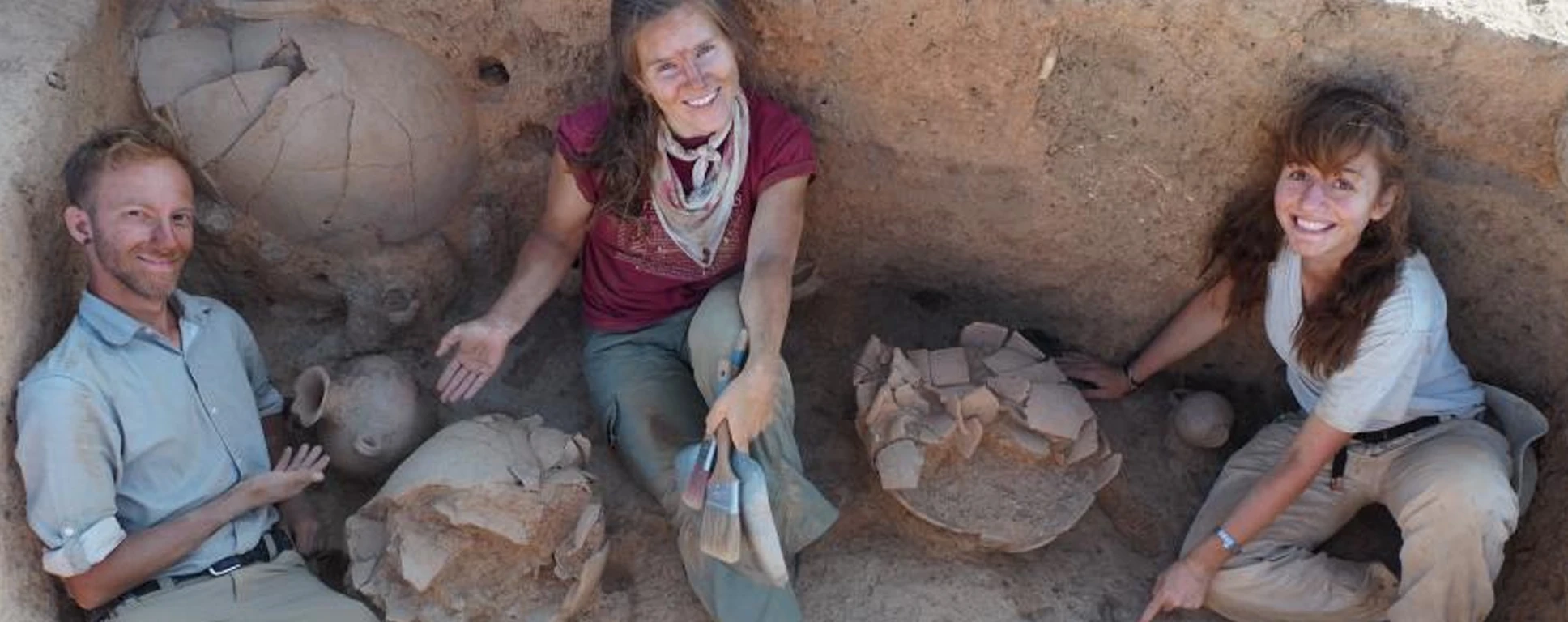
Stones and Bones
Course Description
Join the Field Museum for a four-week intensive practicum in paleontology in Chicago and Wyoming. Go into the field and behind the scenes at the Field Museum to learn how fossils are collected, analyzed, and conserved, as you work alongside museum scientists in the lab and in the field. Stones and Bones gives you a unique opportunity to participate in the paleontological study carried out by the museum.
The program takes place in both Chicago and Wyoming so students get firsthand experience in the extraction and preparation of fossils critical for paleontological study.
In Chicago, University of Chicago and Field Museum scientists will take you into the labs and galleries where they work and study as they introduce important concepts in geology, paleontological methods, stratigraphy, and earth history. Learn about basic techniques for the study of evolutionary biology including comparative skeletal anatomy of fishes and other freshwater animals. You will examine methodological concepts such as fossil preparation, illustration, and description. Through this, you will acquire the fundamental scientific background needed to discover and understand the significance of fossils in the field.
In Wyoming, experience what life in the field is all about when you join the ongoing Field Museum expedition in the Green River Formation. This site is one of the world's most productive fossil sites and contains an entire 52 million-year-old community of extinct organisms. Previous expeditions to the Green River Formation have led Field scientists and his team to uncover thousands of fossils, including plants, insects, mammals, crocodiles, birds, lizards, turtles, and fishes, many of which are currently on display at the museum. Spend your mornings and late afternoon digging for fossils from the Cenozoic Period and interpret them in a way that allows you to incorporate fossils into studies of living animals and plants. In the early afternoon and evenings, you can go into town for provisions, help prepare meals for your fellow diggers, and sit around the campfire with the museum's researchers and their families.
Upon your return to Chicago, you will conserve, catalog, and analyze your new discoveries in the museum's preparation labs, using the same techniques and equipment that the museum's own staff uses. By the end of the program, you will have completed the full cycle of study and preparation of specimens for paleontological research.
Course Criteria
Students should have completed one year of a high school science course, e.g. geology or biology, and earned a grade of B or better. This class has a limited capacity of 15 students.
Stones & Bones is a residential program and requires students to live on-campus, attend classes in person, and also be prepared for outdoor living. Students will spend two weeks of this program tent camping and conducting fieldwork at the dig site in Wyoming. The climate on site is semi-arid desert with daytime temperatures ranging from the upper 60s to upper 90’s (Fahrenheit) and nighttime temperatures occasionally dropping to the mid-30s. There are occasional rainstorms. Students are expected work together with Field Museum scientists to set up camp, prepare group meals, and collect fossil specimens in rugged conditions. Students are not expected to have camped before, but they must be able to adapt and work well with others.
Academic Interest
Biological Sciences, Physical Sciences (e.g., astronomy, physics)
Application Materials
A complete application includes a transcript, two short essays, a letter of recommendation, writing sample, application fee, and a submitted parent confirmation. If you are seeking need-based financial aid, you must indicate that in your application before it is submitted. Please refer to the Application Instructions for complete details.
Additional Materials:In addition to the two essays on the Supplement, Stones & Bones applicants will be required to respond to an additional essay question: Students work together with Field Museum scientists to set up camp, prepare group meals, and collect fossil specimens in rugged conditions. Although students are not expected to have camped before, they must be able to adapt and work well with others. With this in mind, please describe a situation when you have demonstrated resilience and adaptability in a collaborative, group setting, whether with peers, family members, community members, or others (max 250 words).
Instructor(s)
Fabiany Herrera
Cost
$15,200